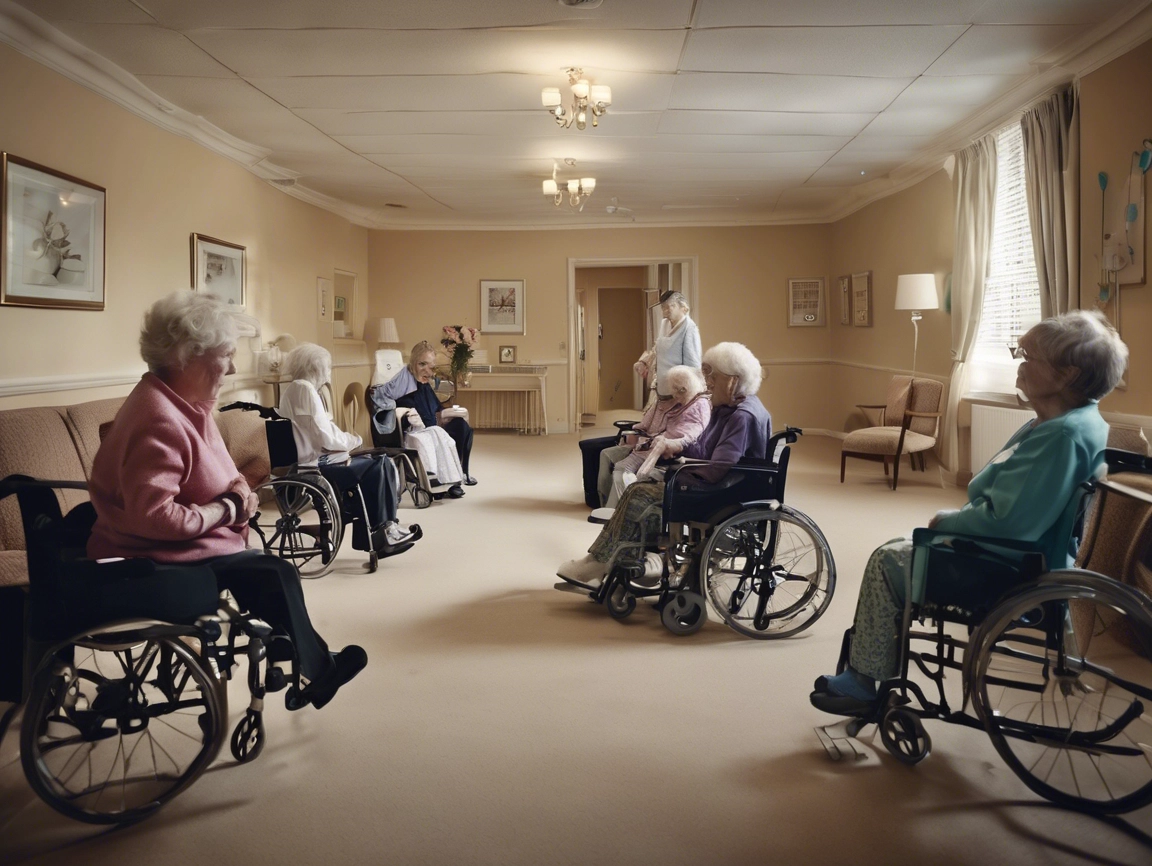The safety and wellbeing of adults with dementia, Parkinson’s disease, and other neurological disorders in care homes has long been a subject of concern. As the population ages, more individuals require specialized care to manage these complex conditions. However, the question remains: Are these individuals truly safe in care homes? Over the last two decades, significant strides have been made, but there are still challenges to address, especially in areas like personal care, safeguarding, budgets, health expenses, and fraud. Looking ahead, the next decade offers both hope and challenges, with evolving healthcare policies, technological advances, and increasing demand for specialized services.
The Realities of Care Home Safety Over the Last 20 Years
Over the past 20 years, the number of adults requiring care homes has dramatically increased due to the aging population. According to the Alzheimer’s Society, an estimated 850,000 people in the UK currently live with dementia, and this number is expected to rise to over 1 million by 2025. Parkinson’s disease is also on the rise, affecting approximately 145,000 people in the UK, with numbers projected to increase as life expectancy increases. As the population grows, so too does the need for specialized residential care.
Personal Care
Providing personal care for individuals with dementia, Parkinson’s disease, and other neurological disorders is complex. These conditions often cause significant cognitive decline, mobility issues, and difficulty with daily activities. While many care homes offer tailored services, the quality and availability of care can vary dramatically. The reality is that personal care can sometimes fall short, as a shortage of trained staff, high staff turnover, and inadequate funding lead to suboptimal care in certain homes.
The Care Quality Commission (CQC) in the UK has regularly reported on these issues, highlighting that some care homes fail to meet the standards of personal care, which can lead to increased risks of falls, dehydration, malnutrition, and neglect. The quality of care is further impacted by the staffing ratios, with many homes struggling to provide sufficient one-on-one support for residents with complex needs. This challenge is exacerbated by the financial constraints faced by many care homes, particularly those in the private sector.
Safeguarding
Safeguarding vulnerable adults in care homes is another crucial issue. Over the past two decades, various incidents have exposed failures in safeguarding practices. High-profile cases of abuse and neglect have led to a greater emphasis on regulation and oversight. The introduction of safeguarding policies and procedures, such as mandatory reporting and training for staff, has helped reduce incidents of abuse. However, vulnerabilities remain. The elderly and those with cognitive impairments are often unable to advocate for themselves, making them more susceptible to mistreatment.
A report by Age UK found that adult safeguarding referrals for abuse and neglect have increased in recent years, signalling ongoing concerns. The rise in the number of people with dementia and Parkinson’s also means more individuals are at risk. One in three residents in care homes in the UK has experienced some form of abuse or neglect, according to data from the Charity Action on Elder Abuse.

Budget and Health Expenses
The financial burden of caring for adults with dementia, Parkinson’s, and other neurological disorders is immense. The cost of residential care is rising year on year, putting pressure on both the public and private sectors. In the UK, the average cost of residential care can range from £600 to £1,200 per week, depending on the region and type of care required. For individuals with complex needs, such as those with severe dementia or Parkinson’s disease, the costs can escalate dramatically.
Public funding for care homes has been under pressure, with local authorities struggling to keep up with rising demand. A 2019 report by the King’s Fund found that 42% of local authorities had reduced their spending on adult social care, and nearly half of care providers were reporting a loss of funding. This has led to concerns about the long-term sustainability of the system, particularly for individuals who rely on public funding.
On the other hand, private care homes often charge higher fees, but the quality of care may still vary. Many individuals with neurological disorders are forced to sell their homes to cover the cost of care, which can be financially devastating. With an aging population and rising healthcare costs, the financial strain on families and the government will continue to grow over the next decade.
The Reality of Fraud in Care Homes
Fraud within the care home sector is another critical issue that has emerged in recent years. Financial exploitation and mismanagement of funds are widespread concerns, with many residents being overcharged for services or subjected to unnecessary treatments. In some extreme cases, fraudulent care providers take advantage of vulnerable individuals, providing substandard care while pocketing the funds allocated for better services.
In 2018, a report by BBC Panorama exposed a care home chain that was found to be providing substandard care while misappropriating funds. This type of fraud not only undermines the integrity of the care home industry but also places vulnerable residents at greater risk. As demand for care homes increases, ensuring transparency and accountability in funding will be critical in preventing further fraudulent activities.
Looking to the Future: Predictions for the Next 10 Years
Over the next decade, several trends are likely to shape the care home landscape for adults with dementia, Parkinson’s, and other neurological disorders.
- Technological Advances: Innovations such as remote monitoring, telemedicine, and artificial intelligence (AI) are expected to play a significant role in improving the quality of care. Technologies that assist with fall detection, medication management, and cognitive therapy may provide more personalized and efficient care, reducing the burden on staff.
- Increased Funding: Governments and private organizations are likely to increase funding for care services as the number of elderly individuals rises. However, the funding may not keep pace with the demand, leading to a potential shortage of spaces in care homes.
- Improved Staff Training and Retention: As the need for specialized care grows, the training and retention of staff will become increasingly important. Over the next decade, more emphasis will likely be placed on providing quality training and ensuring adequate staffing levels. However, challenges in recruitment and retention may persist, particularly in light of Brexit’s impact on the care workforce in the UK.
- Rise in Home Care and Alternative Models: As the demand for residential care rises, so too will interest in alternative models, such as home care and live-in care services. These alternatives may provide more flexible and personalized care options, particularly for those with less severe conditions who may not require full-time institutional care.
Conclusion
While the safety and quality of care for adults with dementia, Parkinson’s disease, and other neurological disorders in care homes has improved over the past two decades, challenges remain. The realities of personal care, safeguarding, budget constraints, and fraud cannot be ignored. With rising demand and financial pressures, the coming decade will require continued innovation, increased funding, and a commitment to improving standards of care. For the elderly and those living with complex neurological conditions, the next 10 years hold both promise and uncertainty. Ensuring the safety and dignity of these individuals in care homes will depend on collective efforts to address these pressing issues head-on.
References
Alzheimer’s Society – Provides statistics on dementia, including prevalence, costs and care impacts. Regular reports highlight trends and policy recommendations. Retrieved from www.alzheimers.org.uk
Parkinson’s UK – Reports on the number of people living with Parkinson’s, care quality and the financial burden on the healthcare system. Retrieved from www.parkinsons.org.uk
Care Quality Commission (CQC)– Regulates and inspects care homes across the UK, providing quality ratings and insights into safeguarding concerns. Retrieved from www.cqc.org.uk
Age UK – Publishes reports on elderly care, care home standards, financial implications and safeguarding against abuse and neglect. Retrieved from www.ageuk.org.uk
The King’s Fund – Conducts research on health and social care issues, including funding challenges, staffing shortages and the future of elderly care. Retrieved from www.kingsfund.org.uk




